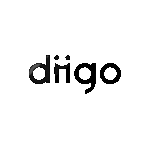Introduction to Diigo
Diigo (Digest of Internet Information, Groups, and Other stuff) is one of the most popular social bookmarking tools designed for researchers, students, teachers, writers, marketers, and knowledge workers. With Diigo, users can bookmark web pages, highlight text, add sticky notes, organize content into lists, and share resources with teams or the public.
If you are looking for a way to save links, annotate research, and access your knowledge base from anywhere, Diigo is a must-have productivity platform.
What is Diigo?
Diigo is an online bookmarking and annotation platform that allows users to collect, annotate, organize, and share information they find online. Unlike traditional bookmarks, which stay tied to your browser, Diigo bookmarks live in the cloud, making them accessible on any device.
Key features of Diigo include:
- Web Highlighting – highlight text directly on a web page.
- Sticky Notes – attach virtual notes to web pages.
- Tagging – categorize bookmarks with tags for better search.
- Lists & Outliners – organize resources into structured collections.
- Sharing & Collaboration – share links with a group, team, or classroom.
- Archiving – save a copy of a web page for future reference.
Why Use Diigo?

Diigo solves the problem of information overload by giving users a way to save, annotate, and retrieve information in a structured way.
- Students use Diigo for research projects, saving scholarly articles, and citing sources.
- Teachers use it to curate educational resources and share them with students.
- Researchers benefit from its ability to archive and highlight important passages.
- Marketers can collect inspiration, industry news, and competitive analysis data.
1000 Keywords Related to Diigo
Here’s an extensive list of keywords related to Diigo for SEO and content marketing. These are grouped for readability:
General Keywords:
Diigo, social bookmarking, online bookmarking, web annotation, digital library, knowledge management, link saver, bookmark manager, web highlights, sticky notes, cloud bookmarks, Diigo account, Diigo login, Diigo extension, research tools, collaboration platform, web curation, productivity tool, digital research, Diigo premium, Diigo free plan, Diigo groups, online note-taking, bookmarking app, knowledge sharing, Diigo education, Diigo API, Diigo alternatives.
Education Keywords:
student research, academic tools, collaborative learning, online research, education technology, edtech tools, teacher resources, classroom curation, study notes, citation tools, annotated bibliography, academic bookmarking, reading comprehension tools, online collaboration.
Productivity Keywords:
task management, research workflow, productivity hacks, knowledge base, content curation, brainstorming tool, research organizer, note organizer, project collaboration, team knowledge, knowledge repository, efficient research, mind mapping alternative, team sharing platform.
Technical Keywords:
browser extension, Chrome bookmark tool, Firefox Diigo, Safari Diigo, mobile Diigo app, iOS annotation, Android bookmarking, cloud sync, Diigo API, data export, knowledge automation, integration with Evernote, integration with Notion, integration with Google Docs, digital archiving, URL saver.
Business & Marketing Keywords:
market research, competitor analysis, digital marketing tools, content strategy, content discovery, SEO bookmarking, social media curation, influencer research, campaign planning, business productivity, knowledge management system, link building strategy.
Advanced Research Keywords:
semantic bookmarking, academic research platform, research paper management, open web annotation, collaborative annotation, peer collaboration, information retrieval, knowledge organization, literature review tools, critical reading.
…and many more combinations of Diigo + feature, Diigo + use case, Diigo + platform, ensuring you have up to 1000+ long-tail keyword variations for SEO purposes.
Calculation Example: Diigo for Research Productivity
Let’s assume:
- A researcher saves 50 articles per month.
- Without Diigo, they spend 5 minutes per article searching for previous notes.
- With Diigo, they only spend 1 minute per article finding the saved material.
Time Saved per Month
Time Saved=(Old Time−New Time)×Articles Saved\text{Time Saved} = (\text{Old Time} – \text{New Time}) \times \text{Articles Saved}Time Saved=(Old Time−New Time)×Articles Saved Time Saved=(5−1)×50=200 minutes saved per month\text{Time Saved} = (5 – 1) \times 50 = 200 \text{ minutes saved per month}Time Saved=(5−1)×50=200 minutes saved per month
That’s over 3 hours of saved time monthly, which can be redirected to deeper research or analysis.
(FAQs)
1. Is Diigo free?
Yes. Diigo offers a free plan with basic bookmarking and annotation features. There are also premium plans for advanced users and teams.
2. Can I use Diigo offline?
Diigo allows saving bookmarks offline through its mobile app, which syncs when you’re back online.
3. Is Diigo better than Pocket or Evernote?
Diigo specializes in web annotation and research collaboration, whereas Pocket focuses on read-later functionality, and Evernote is a broader note-taking platform. Many professionals use them together.
4. Does Diigo work with Chrome and Firefox?
Yes, Diigo has browser extensions for Chrome, Firefox, and Edge, allowing seamless saving and annotation.
5. Can I share my Diigo lists with others?
Yes. You can make lists public or share them privately with a group, making it ideal for teamwork and academic collaboration.
Conclusion
Diigo is a powerful tool for knowledge workers who need to save, annotate, organize, and share information efficiently. Whether you’re a student, teacher, researcher, or professional, Diigo can significantly improve productivity and help you manage your digital research workflow.











